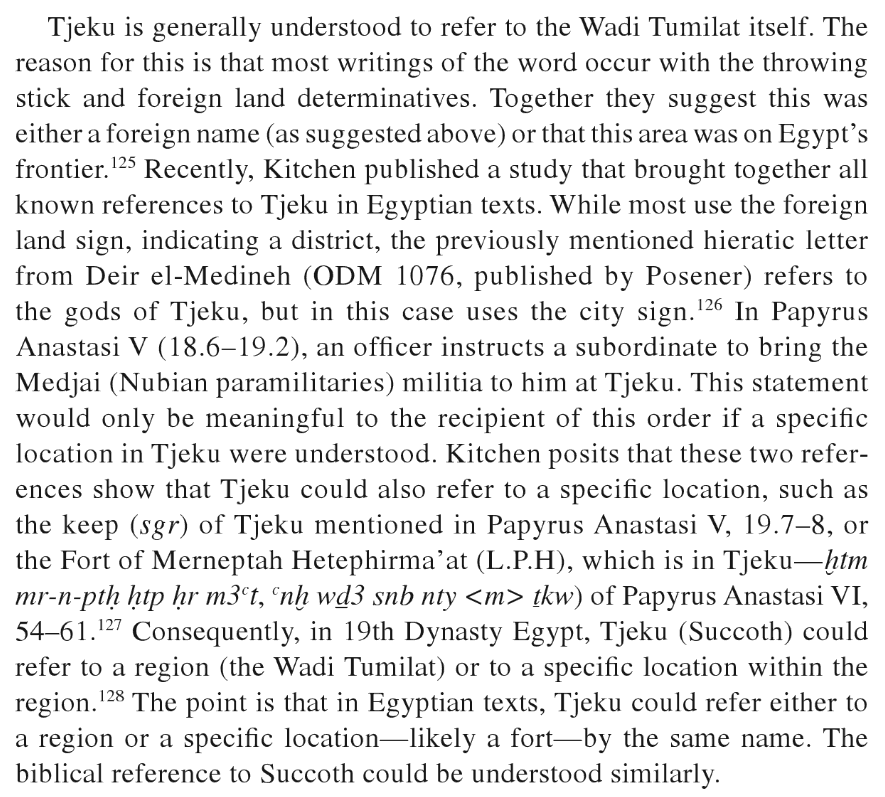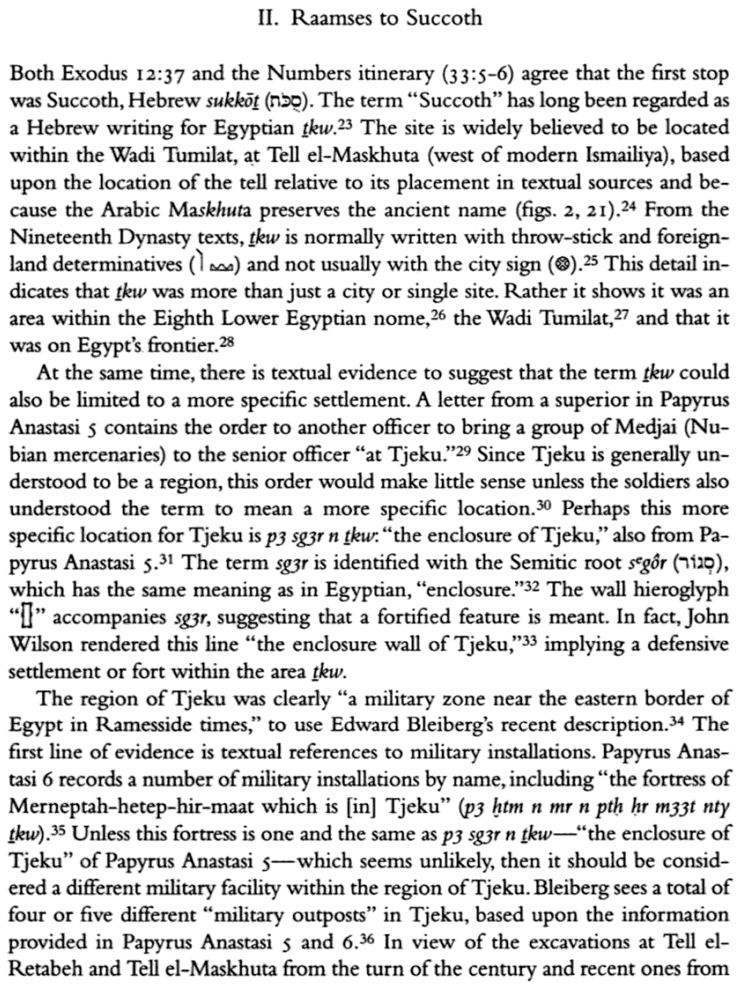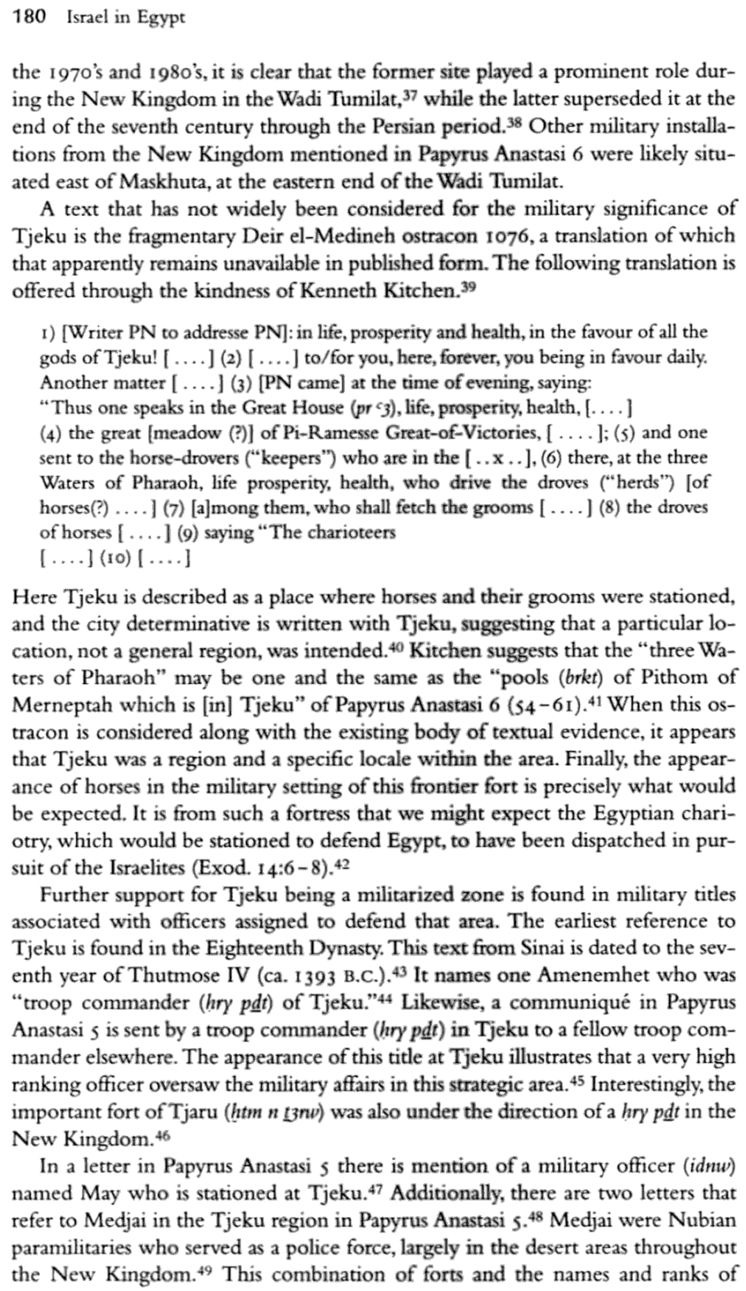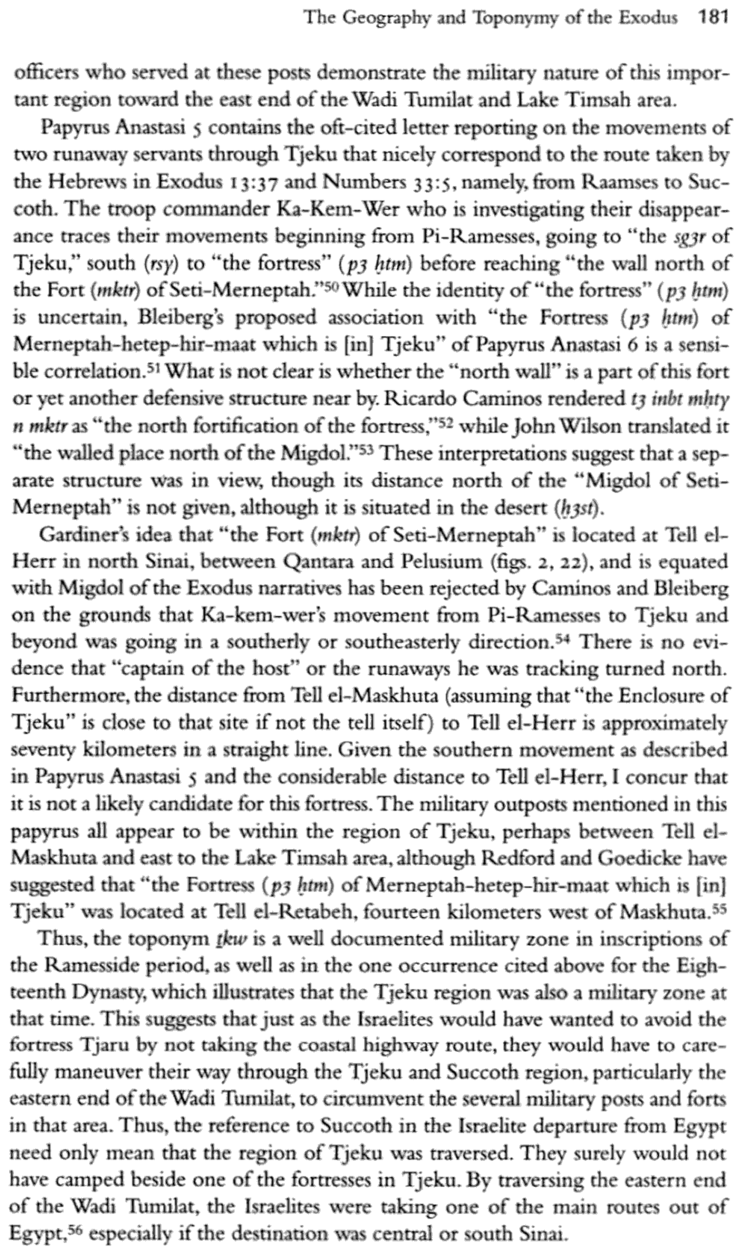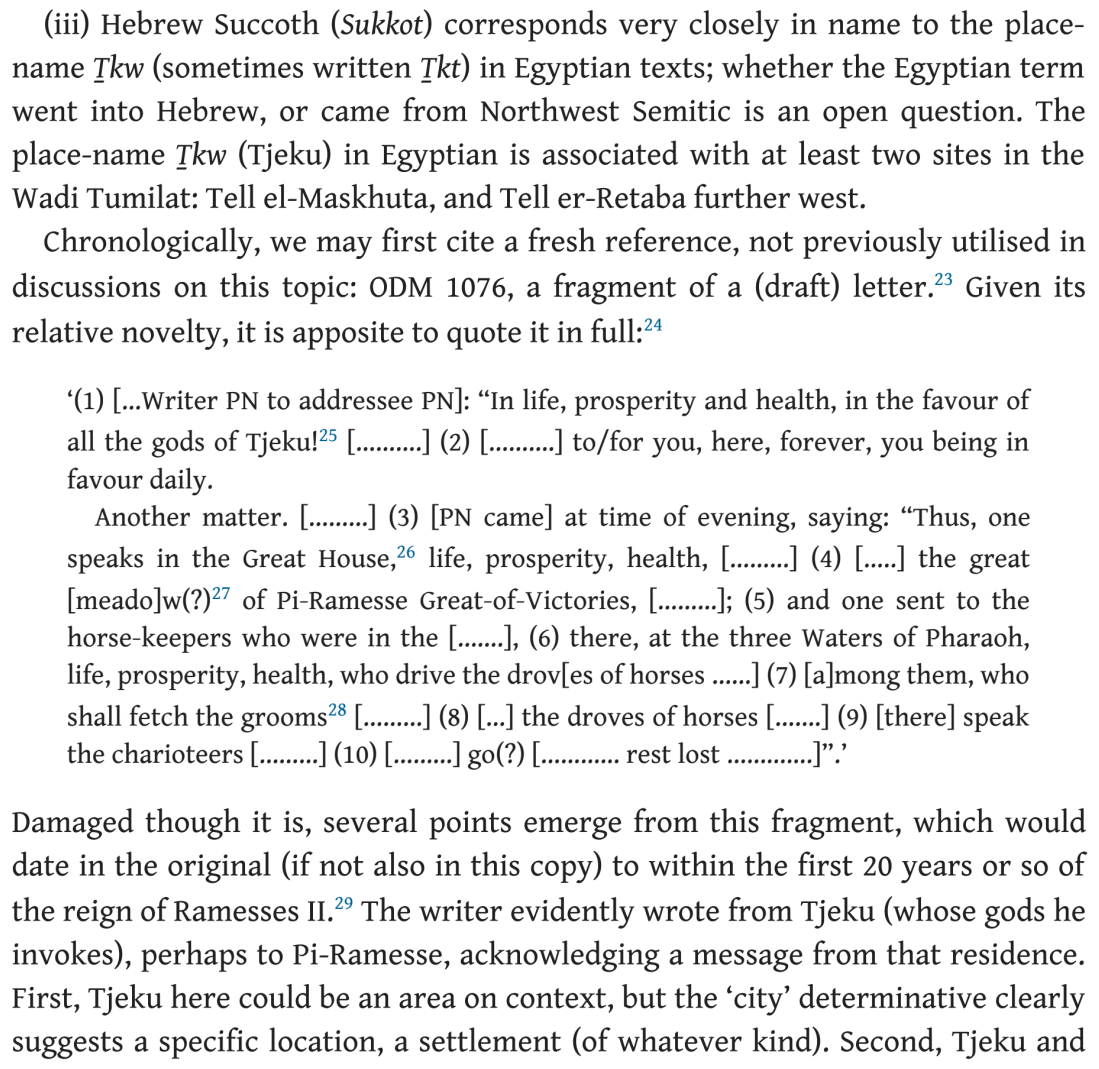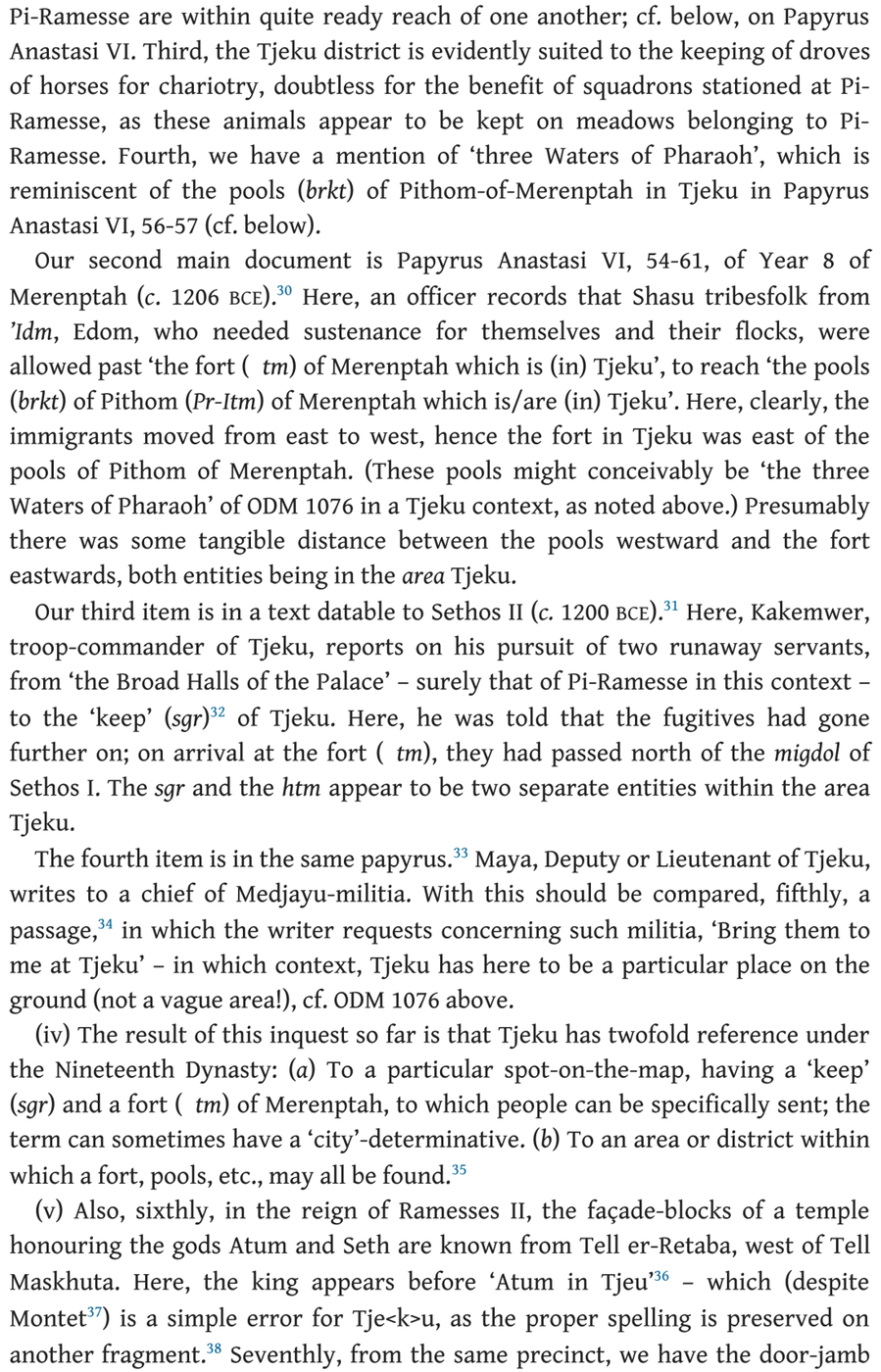|
Other Archaeological Sites / The Neolithic of the Levant (500 Page Book Online) Egyptian Tjeku -- Theku -- Teku Updated July 31th 2019 In Egyptian texts Tjeku could refer either to a region or a specific location --- most likely a fort by the same name ... Israel: Ancient Kingdom Or Late Invention? --- Daniel Isaac Block (Editor) (2008) Page 122 in an Essay by James Hoffmeier (See Below Also) ...
Tjeku is generally understood to refer to the Wadi Tumilat itself. The reason for this is that most writings of the word occur with the throwing stick and foreign land determinatives. Together they suggest this was either a foreign name or that this area was on Egypt’s frontier. Recently Kitchen published a study that brought together all known references to Tjeku in Egyptian texts. While most use the foreign land sign, indicating a district, the previously mentioned hieratic letter from Deir el-Medineh (ODM 1076 published by Posener) refers to the gods of Tjeku but in this case uses the city sign. In Papyrus Anastasi V (18.6—19.2) an officer instructs a subordinate to bring the Medjai (Nubian paramilitaries) militia to him at Tjeku. This statement would only be meaningful to the recipient of this order if a specific location in Tjeku were understood. Kitchen posits that these two references show that Tjeku could also refer to a specific location such as the "keep" (sgr) of Tjeku mentioned in Papyrus Anastasi V 19.7-8 or the Fort of Merneptah Hetephirma at (L.P.H) which is in Tjeku (Papyrus Anastasi VI 54-61). Consequently in 19th Dynasty Egypt Tjeku (Succoth) could refer to a region (the Wadi Tumilat) or to a specific location within the region. The point is that in Egyptian texts Tjeku could refer either to a region or a specific location—likely a fort—by the same name. The biblical reference to Succoth could be understood similarly. Israel in Egypt: The Evidence for the Authenticity of the Exodus Tradition by James K. Hoffmeier (1999)
The Origin of Early Israel-Current Debate: Biblical, Historical and Archaeological Perspectives
"Egyptians and Hebrews from Raamses to Jericho" by Kenneth Anderson Kitchen
and read on the subject of Tjeku Pages 257-9 in |
